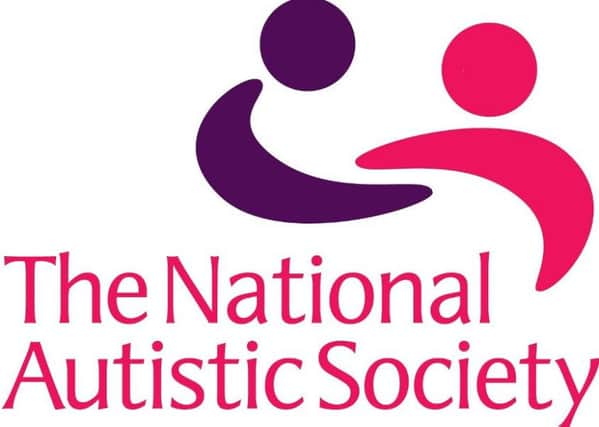'˜Only 16% of autistic people' are in full-time paid work
This article contains affiliate links. We may earn a small commission on items purchased through this article, but that does not affect our editorial judgement.


The charity’s research shows that proportion of autistic people in full-time paid work has stagnated over the past decade, at just under 16 per cent.
The new figures are revealed as the Scottish Government prepares to deliver new programmes supporting disabled people into work from April 2017 when new powers are devolved from Westminster.
Advertisement
Hide AdAdvertisement
Hide AdThe charity claims that autistic people have been let down by UK Government programmes and overlooked by employers for far too long.
They are calling on the Scottish Government to close the autism employment once and for all – by consulting with autistic people and their families when implementing new programmes and making sure they include autism-specific support.
According to a survey of over 2,000 autistic adults across the UK, or people responding on their behalf:
*Under 16 per cent are in full-time paid work - static since 2007.
*Only 32 per cent are in some kind of paid work - full and part time combined -, compared to 47% of disabled people and 80% of non-disabled people.
*Over three quarters - 77% - who are unemployed say they want to work.
*Four in 10 say they’ve never worked.
More than 1 in 100 people are on the autism spectrum, including around 37,000 autistic people of working age in Scotland.
Being autistic means they see, hear and feel the world in a different, often more intense way from others.
Advertisement
Hide AdAdvertisement
Hide AdAutistic people often find social situations difficult, can struggle to process information quickly and may be highly sensitive to sound or light or smells.
This can make finding and staying in a job very difficult if managers, employers and colleagues don’t understand autism.
Jenny Paterson, director of The National Autistic Society Scotland, said: “Our research reveals shocking levels of underemployment among autistic people.
“And it’s not just autistic people who are missing out on the chance of a fulfilling career – employers are missing out on the benefits of a diverse workforce.
“UK Governments have introduced various schemes aimed at improving the disability employment rate over the years.
“But it clearly hasn’t worked for autistic people. With the devolution of powers in April 2017, the Scottish Government has the opportunity to close the autism employment gap. We’re calling on it to consult with autistic people, their families and the third sector as it implements the new programmes and make sure they include autism-specific support.”
She added: “Autism is a spectrum condition and not all autistic people are able to work. But many autistic people are desperate to find a job. With a little understanding from employers and small adjustments to working practices, autistic people can make a huge contribution to companies across our country.”
Michael Clarkson, 42, from Glasgow, has Asperger syndrome.
He has four degrees and is currently employed at two leading universities in roles that include IT tutoring, exam invigilation, and visa checking. In the past, he has also worked in IT Support.
Advertisement
Hide AdAdvertisement
Hide AdMichael is also a qualified scorer on the Cricket Scotland national panel.
Michael said: “Some of the traits relating to my Asperger’s mean that I am good at my jobs.
“I have excellent concentration, focus for repetitive tasks and high attention to detail. I am an honest worker who takes pride in all that I do.
“Despite this, I have faced barriers to employment. Job interviews can be difficult and I think that employers sometimes feel that they would be taking an increased risk in employing me, a person who has Asperger’s.
“I should be able to walk into a good job given my skills, qualifications and relevant experience, but I have been held back due to the way society handles my Asperger syndrome.”
A Scottish Government spokesperson said: “We recognise the very specific challenges people with autism can face in securing sustained employment. As we design our devolved employment support, we’ve made sure to consult with myriad advocacy organisations and service providers to better understand the challenges and how these can be addressed.
“We will expect service providers to have specialist support in place for people with additional support needs to secure sustained employment. They will be expected to work closely with employers and have a proven track record of achieving positive results for their clients.”
DOWNLOAD THE SCOTSMAN APP ON ITUNES OR GOOGLE PLAY
